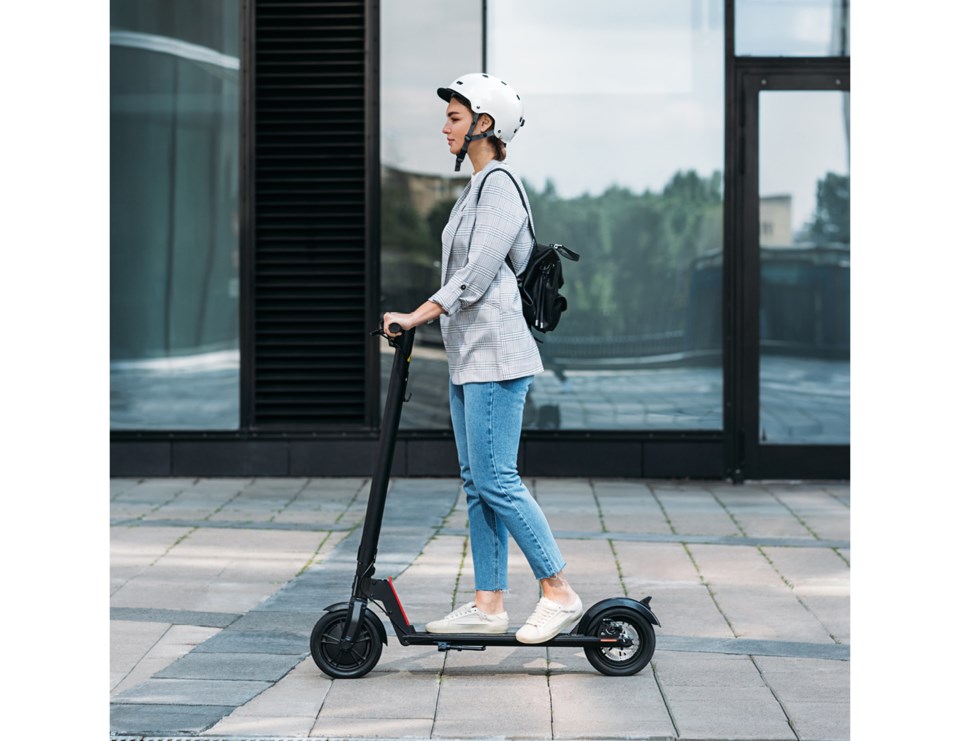Richmond is now taking part in a provincially-led e-scooter pilot project, after the city was accepted into the project by the B.C. government last month.
The pilot project, aimed at examining the safety of the devices, allows the use of e-scooters within the city as of July 27 – as long as they are in line with provincial regulations and Richmond’s bylaws, which sets out speed limits and where e-scooters can be used.
“Through monitoring and evaluation, the pilot project is an opportunity to understand the safety of e-scooters, impacts on the public realm, potential for travel mode shift, and community perceptions that in time, will help inform future active transportation initiatives,” said Mayor Malcolm Brodie in a statement.
E-scooters are upright, motorized scooters with two to four wheels and a platform for standing on between the front and back wheels and a steering handlebar.
The devices, also known as electric kick scooters, cannot be used on sidewalks or on unpaved trails such as the dyke trails. (This pilot isn’t for mobility scooters often used by seniors and people with mobility issues – these are allowed on sidewalks.)
Riders must be 16 years and older, must wear a helmet and cannot carry passengers, however, they don’t have to have a driver’s licence.
In Richmond, e-scooters can only be used on designated cycling facilities – such as bike lanes – local streets with a speed limit of 50 km/h or less and which don’t have lane or directional dividing lines, or on streets with a dividing line and maximum speed limit of 30 km/h.
E-scooters can also be used on off-street paved pathways next to the roadway or in parks that are signed or marked for shared use. The city will also be adding more shared use signage to paved pathways where needed.
On roadways, the maximum speed limit is 20 km/h while on shared-use pathways, it’s 15 km/h. Furthermore, riders must slow down to a “walking speed” when they encounter pedestrians, according to the City of Richmond.
Enforcement will be done by Richmond RCMP.
An amendment to the Motor Vehicle Act in 2019 permits selected local governments to work with the province on the e-scooter pilot project, which examines the safety of the devices.
Other communities participating in the pilot are Vancouver, North Vancouver, West Vancouver, Kelowna, Vernon and Nanaimo. It’s illegal to use e-scooters in any community that isn’t participating in the pilot project.
When it comes to the use of other motorized devices in Richmond, the city's corporate communications officer Kim Decker said e-bikes fall under the Motor Vehicle Act and have a maximum speed of 32 km/h.
She pointed out, however, that the city amended its bylaws to limit the maximum speed to 15 km/h on shared pathways with pedestrians, such as the Railway Greenway or dyke trails.
Meanwhile, segways, motorized skateboards or similar devices cannot operate on roads or on sidewalks beside them in B.C.



